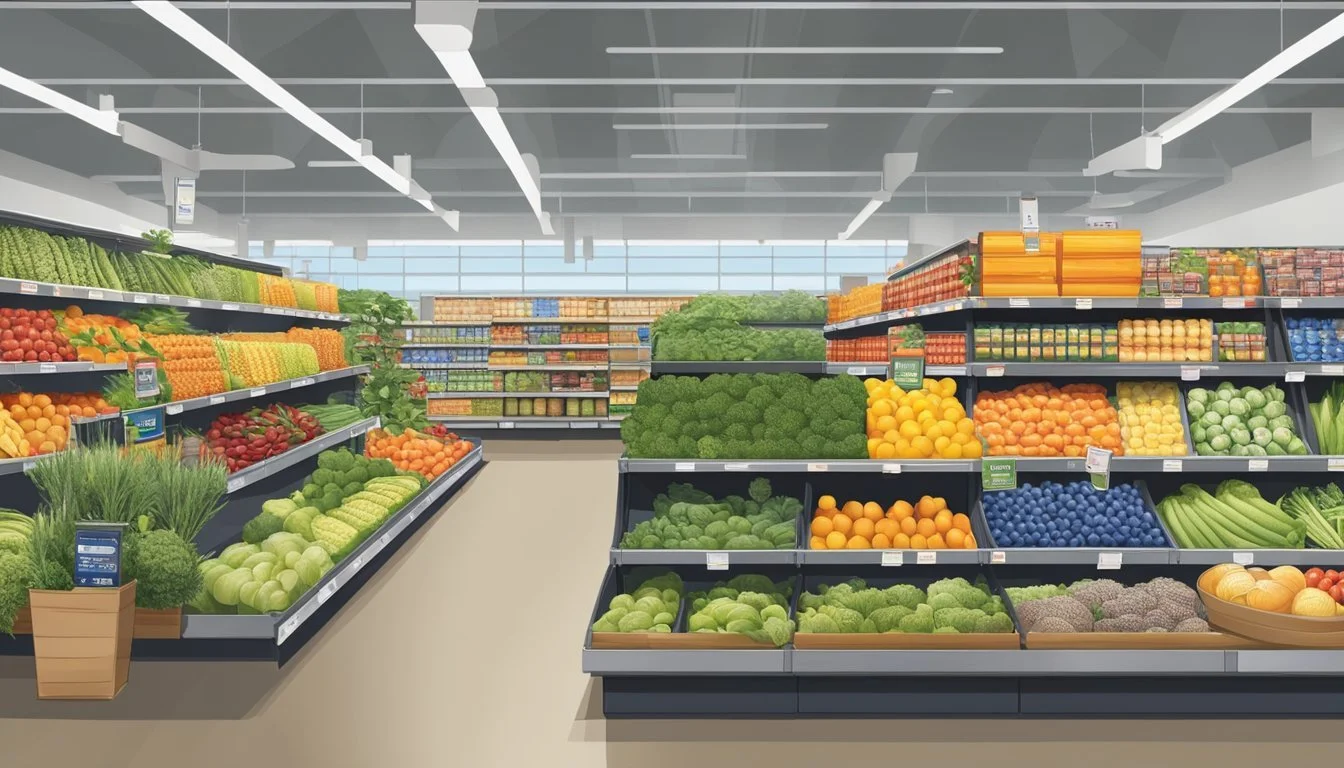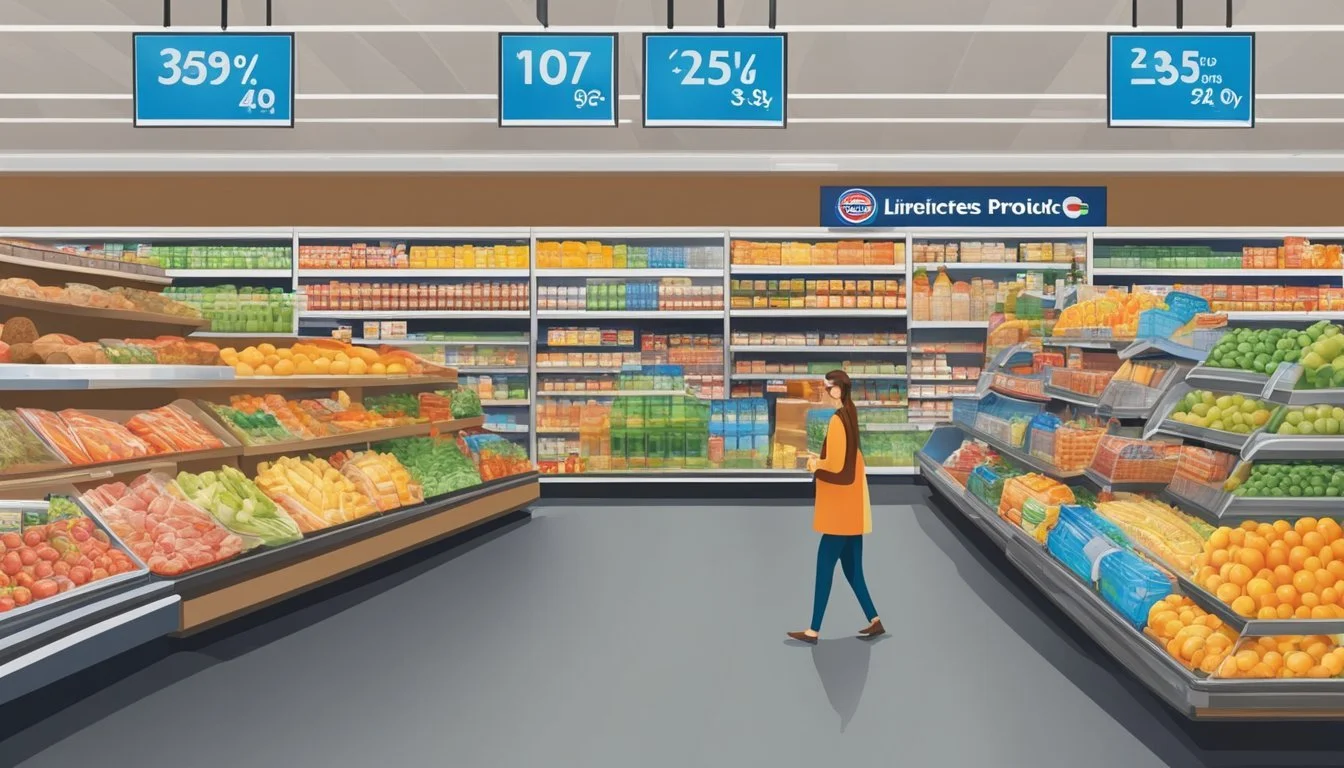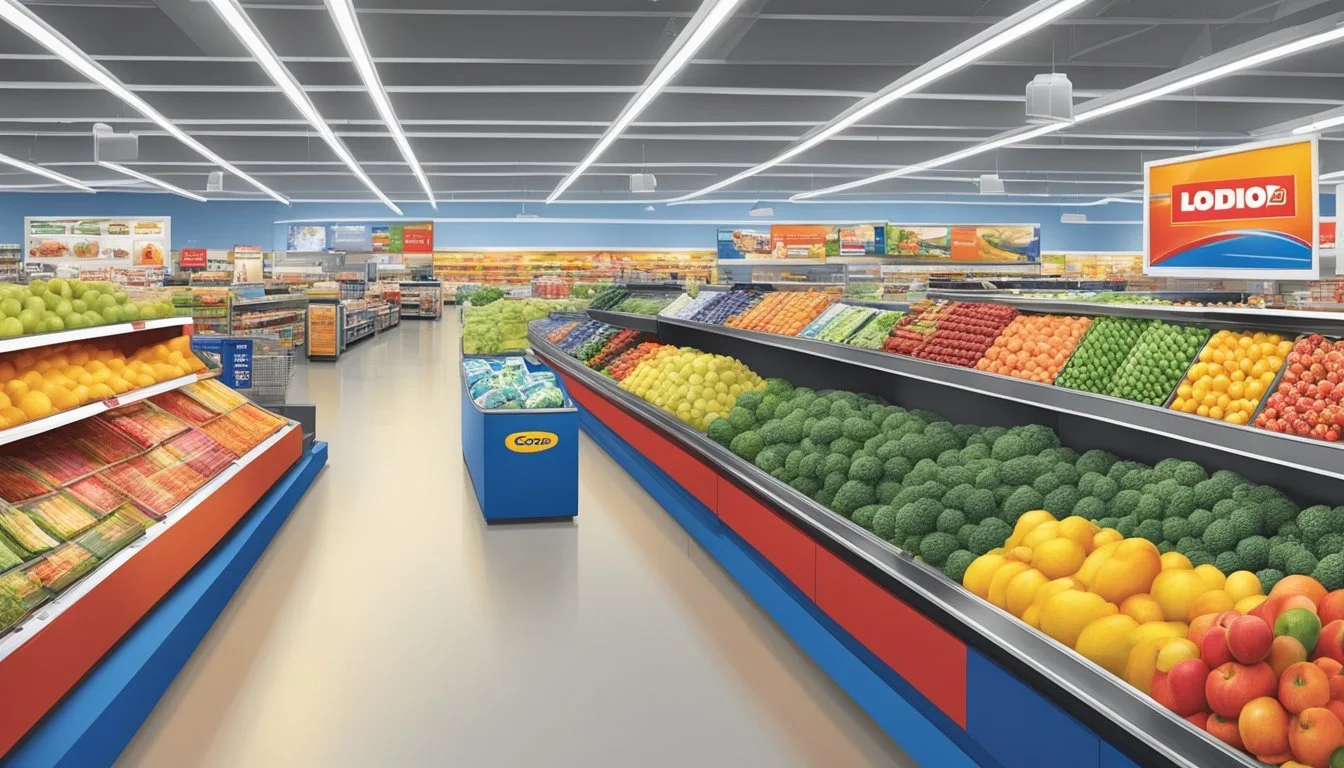Costco vs Lidl
Comparing Shopping Experience, Prices, and Quality
When shopping for groceries, factors like price, quality, and variety are critical considerations for consumers. Costco and Lidl are two retailers that have carved out significant niches in the grocery market, each appealing to different shopper priorities. Costco is renowned for its bulk purchases and competitive pricing, benefiting from strong vendor relationships and a limited selection strategy that keeps costs low for consumers.
Lidl, on the other hand, operates with a different business model that focuses on a more traditional retail experience but at a lower to medium price level. With its roots in Europe, Lidl has been making strides in the Eastern region of the United States, appealing to customers through its competitive pricing and convenient store layouts.
The question of which grocery store is better cannot be answered with a simple declaration; it depends largely on the consumer's shopping preferences. Those who prioritize bulk purchase savings and are willing to pay a membership fee might favor Costco, while shoppers looking for daily low prices without a membership may prefer Lidl's cost-effective approach.
Costco vs Lidl Overview
In examining the two retail giants, Costco and Lidl, it's imperative to consider their historical backgrounds, distinctive business models, and market presence to understand which grocery store delivers a better shopping experience.
Company Histories
Costco, founded in 1983 in Seattle, Washington, has established itself as a leading warehouse club delivering a wide range of bulk merchandise at competitive prices. Its history is marked by a philosophy of providing value to its members through high-volume sales of limited selection of products.
Lidl, with origins in Germany dating back to 1973, operates on a principle of cost-saving efficiency, simplicity, and localized assortments. Lidl has built its reputation by offering a no-frills shopping experience with private label products at low prices.
Business Models
Costco operates on a membership-based business model that offers customers lower prices on a limited selection of bulk-sized products, encompassing groceries and other goods, in a warehouse-style setting. Their model emphasizes customer loyalty and recurring revenue through membership fees.
Lidl, on the other hand, adopts a discount grocery store format, focusing on store-brand products, efficiency, and smaller, more frequently located stores. Their no-frills retail format allows for a lower pricing strategy without compromising on quality.
Market Presence
Costco's market influence extends widely, with a substantial foothold in North America and a growing presence in international markets including Europe and Asia. The brand is known for its large warehouse stores that necessitate substantial retail space.
Lidl's presence skews more towards Europe, with significant penetration in Eastern and Western European countries and a growing number of locations in the United States. Its expansion strategy involves convenient store placement and catering to local tastes and preferences.
In summary, both Costco and Lidl offer distinct value propositions through their unique business approaches in the competitive grocery store sector.
Membership and Pricing Structures
When one compares Costco and Lidl, it's important to consider how their membership and pricing structures influence the shopping experience. Costco operates on a membership-based structure, with a tiered model offering various benefits. Conversely, Lidl's approach to pricing focuses on offering low to medium prices without a membership requirement.
Costco Membership Details
Costco offers two primary membership levels:
Gold Star Membership: At an annual fee of $60, this membership level offers access to all Costco locations worldwide and the ability to purchase goods for personal use.
Executive Membership: Priced at $120 annually, this level includes all Gold Star benefits plus a 2% reward on qualifying Costco purchases, among additional benefits.
Members can take advantage of various discount prices throughout the store, which often include bulk items and larger quantities aimed at providing better value per unit.
Lidl's Pricing Strategy
Lidl does not require a membership for shopping. Their stores cater to customers by offering:
Low to Medium Prices: Striving to keep the prices affordable, Lidl competes strongly on price points, often attracting customers with their lower-cost options.
Weekly Specials and Discounts: Regular discount prices are offered on a variety of products, further emphasizing their strategy to provide value to shoppers.
Lidl's focus is to keep prices low for all customers, which is reflected in their no-membership model and their efforts to maintain cost-effectiveness across their product range.
Product Range and Quality
When comparing Costco and Lidl, the range and quality of products available play a crucial role in determining which grocery store stands out. Costco is renowned for its bulk goods and exclusive brands, while Lidl offers a diverse European-centric selection with a strong emphasis on affordability without sacrificing quality.
Costco's Product Assortment
Costco carries a wide array of products, with an emphasis on bulk items and large quantities. Members can find everything from produce, such as eggs and fresh produce, to meats and salmon. Their bakery section offers a variety of breads, cookies, and cakes. The wholesale retailer is also known for its Kirkland Signature brand, which provides high-quality items at competitive prices across various categories including snacks, cheeses, toiletries, and supplements. Costco's furniture selection features both indoor and outdoor options, appealing to a broad range of household needs. Additionally, there's a noteworthy selection of alcohol, which includes premium wines and spirits.
Kirkland Signature products: High-quality at lower prices
Bulk goods: Save by buying in large quantities
Alcohol selection: Premium wines and spirits
Lidl's Product offerings
Lidl offers a diverse selection of goods, reflecting its European roots with an inventory that includes a wide range of produce, meats, and bakery items. The store's Simply Nature line caters to those seeking organic and eco-friendly products. Lidl's pantry staples and fresh produce are praised for their affordability and quality. Customers can also find an array of cheeses and snacks, alongside a rotating selection of non-food items that can include anything from fitness equipment to small kitchen appliances. Lidl's toiletries and household goods offer consumers budget-friendly options, and its selection of wines and spirits provides good value for money.
Simply Nature: Organic and eco-friendly choices
Fresh produce: A wide range at low prices
Rotating selection: Regularly updated items including seasonal goods
Store Experience and Services
Costco and Lidl provide different shopping atmospheres and range of services designed to meet varying customer preferences and needs.
Shopping Atmosphere
Costco is known for its large warehouse-style stores, offering a wide range of products from groceries to electronics under one roof. They typically have wide aisles and bulk products, which is appealing for those looking to stock up on items. Their store brand, Kirkland Signature, is prominent throughout the store, providing a range of quality products at competitive prices. As for signage, Costco maintains straightforward navigation with large, visible markers to guide customers through different sections.
Lidl contrasts with a more traditional grocery store layout, often smaller than Costco. Their product assortment includes competitive store brands such as Preferred Selection, which is their premium private label, and more basic lines like Simply Nature and Happy Farms. The shopping atmosphere in Lidl is geared towards a quick and affordable shopping experience, with clear signage and a focus on their value-driven bakery and grocery offerings.
Additional Services Offered
Costco Services:
Pharmacy: Full-service with a focus on health and wellness.
In-store Pickup: Available for select items, adding convenience.
Electronics: Broad selection including the latest models from top brands.
Lidl Services:
Bakery: In-store bakeries offering fresh bread, pastries, and baked goods daily.
Signage: Clear and concise, facilitating an easy shopping experience.
Private labels like Friendly Farms and Happy Farms emphasizing value.
Pricing Comparison
In evaluating Costco and Lidl, one must consider the pricing of everyday staples and specialty items, as these are critical for consumers seeking value. Specific prices may vary by location, but general patterns in pricing strategies are evident for these retailers.
Everyday Staples
At Costco, shoppers often find that bulk packaging leads to lower prices on everyday items. For instance, ground turkey, flour, and sugar are sold in large quantities, which drives down the cost per unit. A cost comparison reveals that for a product like shredded cheese, the price may range approximately between $2.00 to $3.00 per pound when purchased in bulk.
Ground Turkey: Costco's larger packs may result in prices as low as $2.99 per pound.
Flour, Sugar: Bulk sizes can mean prices roughly 20% lower than average grocery store prices.
Canned Goods: Buying in bulk can lead to significant savings, with prices up to 30% less per can.
Specialty Items
Shifting focus to specialty items, Lidl competes by offering competitive pricing without skimping on quality. Their strategy includes smaller package sizes, which are more suitable for customers not interested in bulk buying. Their price tags on specialty items are often deemed affordable while maintaining a high quality.
Specialty Cheeses: Lidl may offer options at $2 to $5 per package.
Imported Goods: Special finds at Lidl may be priced competitively compared to other non-bulk retailers.
In both stores, prices are constantly subject to change due to promotions, discounts, and inventory adjustments. This comparison gives a snapshot of the potential savings, but shoppers should always check in-store or online for the most current pricing.
Location and Convenience
When considering Costco and Lidl, it's crucial to evaluate how accessible each store is for consumers and the options available for those who prefer to shop online.
Store Accessibility
Costco operates a vast network of warehouse clubs across the United States, with a notable presence on both coasts, including in the state of Georgia. They compete directly with other wholesale and retail giants such as Sam's Club, a division of Walmart, and have locations accessible to most urban and suburban populations. While Costco's focus remains on offering bulk items and a variety of services, consumers may find its locations somewhat less dense when compared to other grocery chains like Kroger, Wegmans, or Target.
In contrast, Lidl has established its U.S. presence primarily on the East Coast. Although it has fewer locations than some competitors - notably Trader Joe's and Aldi - it is expanding and offers consumers a European-style grocery experience that stands out for its value offerings on a wide variety of products, often directly competing with Walmart and Target stores in the regions it serves.
Online Shopping Options
Costco has leveraged its partnership with platforms like Instacart to allow for online ordering and home delivery, thereby increasing its service's convenience. This positions Costco as an alternative to services like Amazon, especially for bulk items and household goods.
Lidl, while newer to the U.S. market, has been developing its online shopping options but does not yet offer the same breadth of online services as Costco. However, it does provide online leaflets and specials that highlight current in-store offerings, allowing customers to plan their shopping trips efficiently. Lidl’s online presence is also a strategic move to keep pace with Aldi and other competitors capitalizing on the growing trend of digital grocery shopping.
Brand and Private Label Offerings
Within the competitive landscape of retail grocery chains, both Costco and Lidl have crafted distinct brand identities through their private label offerings. Shoppers often weigh the appeal and value of store brands in their purchasing decisions.
Exclusive Brands
Costco is renowned for Kirkland Signature, its exclusive private label brand that spans across various categories. The Kirkland Signature line stands as a robust representation of quality that often matches or exceeds the standards set by national brands. Consumers trust Kirkland Signature products for their consistency and competitive pricing.
Lidl, on the other hand, offers a notable private label brand called Simply Nature. The Simply Nature line prioritizes natural and organic options, catering to health-conscious customers. It represents Lidl's commitment to accessibility in offering wholesome products at an affordable price point.
Both Costco and Lidl ensure their exclusive brands provide a compelling reason for consumers to choose their stores over competitors. They each leverage their private labels to create a loyal customer base that appreciates the balance between quality and value. The assessment of these brands illustrates their importance in the overall strategy of the respective stores.
Customer Satisfaction and Loyalty
When considering customer satisfaction and loyalty between Costco and Lidl, it is essential to focus on their brand reputation and return policies. These elements are pivotal in determining how these grocery stores stack up against one another from a consumer perspective.
Brand Reputation
Costco is renowned for its high customer satisfaction rates, as evidenced by its ranking in various surveys and indices. For instance, in the AARP survey, Costco is listed among the top 10 supermarkets. This positions it as a highly regarded retailer among consumers, who prefer its bulk offerings and cost-effective shopping experience for stocking up on goods. Lidl, while also popular and holding its own against other grocery brands, scores slightly lower with a 4.1 rating on Knoji, compared to Costco's 4.6. The perceived value and quality of goods from both retailers contribute to their brand reputation.
Return Policies
Costco's return policy is one of the most generous among retailers, offering full refunds on most merchandise with few exceptions. This policy fosters strong loyalty among its members, giving them confidence in purchasing even in bulk without hesitation. In comparison, Lidl's return policy is also fair, allowing customers to receive refunds for products that don't meet their satisfaction standards. However, the specifics of Lidl's policy may vary by location, which can affect customer perception and loyalty.
Costco's overall customer experience, including its cost-effective options and hassle-free refunds, contributes to its position at the top of customer trust and loyalty rankings. Lidl, while maintaining a good reputation, continues to expand its market share by offering competitive prices and focusing on customer satisfaction through its return policies.
Marketing and Promotions
Marketing and promotions are vital in distinguishing Costco and Lidl in the competitive grocery store landscape. Costco focuses on a curated selection of merchandise and exclusive member specials, while Lidl emphasizes affordability and diverse offerings including bakery and clothing items.
Advertising Strategies
Costco leverages a straightforward marketing strategy centered around its membership model. They capitalize on word-of-mouth and a robust selection of warehouse-based merchandise to attract consumers, abstaining from traditional advertising methods. In contrast, Lidl employs regular advertising campaigns, utilizing flyers and multi-media channels to highlight their specials on various products such as bakery goods, fresh flowers, and apparel.
Costco: Minimal traditional advertising; emphasis on word-of-mouth.
Lidl: Regular use of flyers and multi-media advertising campaigns.
In-Store Specials
Costco and Lidl both offer unique in-store promotions to lure shoppers. Costco’s specials are often tied to bulk purchases, which reflect the company's large volume sales model, and are typically exclusive to their members. Their limited selection includes periodic specials on categories like electronics, clothing, and home goods. Lidl’s specials, on the other hand, are more varied with frequent discounts on a wide array of products ranging from their in-house bakery to seasonal flowers, reflecting their strategy to provide a broad selection at a low cost.
Costco:
Exclusive member specials.
Limited-time discounts on a select range of products.
Lidl:
Regular discounts across several departments.
Weekly specials often include perishable goods and non-food items.
Conclusion
When consumers consider whether to shop at Costco or Lidl, several factors come into play. They must weigh these factors based on their personal shopping preferences and needs.
Costco is renowned for its bulk purchases and membership model, rewarding customers with wholesale prices and a wide range of products, including electronics and furniture. It suits those looking for quality in larger quantities.
On the other hand, Lidl offers an affordable shopping experience with a strong emphasis on groceries. Its competitive pricing strategy appeals to individuals and families looking to manage their budgets without compromising on quality.
Both Costco and Lidl have cultivated distinct brand identities and loyal customer bases across the United States. They each offer value in their own right:
Costco:
Membership-based
Bulk purchasing
Wide product range
Quality-focused
Lidl:
No membership required
Affordably priced items
Grocery-focused
Quality and savings balance
Shoppers are advised to reflect on their priorities, such as price, quantity, and membership preferences, before making a decision. The determination of which grocery store is better will ultimately depend on the shopper's unique needs and shopping behavior.










